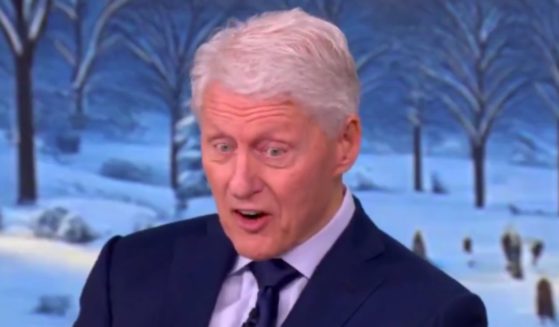
Fuzzy on Trump Tower Moscow? Here's what we know so far
WASHINGTON (AP) — Confused about the business proposal to build a Trump Tower in Moscow? Join the club.
President Donald Trump’s lawyer-spokesman Rudy Giuliani and a disputed Buzzfeed News report have muddied the waters on exactly how long negotiations over the project went on. It’s a key question because Trump was pursuing the deal during the 2016 campaign while he was publicly calling for easing U.S. sanctions on Russia and as Moscow was directing a large-scale operation aimed at swaying the election his way.
Here’s what we know so far:
— September and October 2015: As a Trump Organization lawyer, Michael Cohen receives a proposal for a hotel, office and residential building in Russia that comes to be known as the Trump Tower Moscow project. One of Trump’s numerous corporate entities then enters into a letter of intent on the project.
— Late 2015: Donald Trump Jr. and Ivanka Trump are copied on emails about the project. In one email, Ivanka Trump suggests an architect for the building.
— May 4-6, 2016: Felix Sater, an executive who had worked on and off for the Trump Organization, and Cohen discuss having Trump visit Russia after the Republican National Convention. They also discuss the possibility of Cohen meeting in mid-June with Russian President Vladimir Putin and Russian Prime Minister Dmitry Medvedev. Sater said Peskov had invited Cohen as his guest.
— Aug. 28, 2017: Cohen submits to Congress a two-page letter about the Trump Tower Moscow deal, saying the project ended in January 2016, that he only discussed it three times with Trump, that he never considered traveling to Russia or asking Trump to travel there, and that he did not recall having contact with the Russian government about the proposal. All of those statements were false, according to court papers.
— September and October 2017: Cohen says in prepared remarks to the Senate intelligence committee that the Moscow deal ended “before the Iowa caucus and months before the first primary.” He says the same during testimony before the committee. Those statements turned out to be lies.
— Nov. 29, 2018: Cohen pleads guilty to lying to Congress. He says he briefed Trump and his family members on the Russia proposal through June 2016. Cohen says he lied to minimize the public understanding of Trump’s Russia ties, to try to limit the various Russia investigations and to be consistent with Trump’s “political messaging.”
— Dec. 12, 2018: Cohen is sentenced to three years in prison.
— Jan. 17, 2019: BuzzFeed News, citing two unnamed law enforcement officials, reports that Trump directed Cohen to lie to Congress about the Trump Tower Moscow proposal. The report does not specify what Trump said to Cohen or when he said it.
— Jan. 18, 2019: In a rare public statement, a spokesman for special counsel Robert Mueller disputes the BuzzFeed report. “BuzzFeed’s description of specific statements to the Special Counsel’s Office, and characterization of documents and testimony obtained by this office, regarding Michael Cohen’s Congressional testimony are not accurate,” spokesman Peter Carr says in a statement. BuzzFeed stands by the story and asks for clarity from Mueller’s team.
— Jan. 20-21, 2019: Giuliani suggests in TV interviews that Trump remembers conversations with Cohen about the project “up to as far as October, November,” or right up until the election. That would have extended the timeline for the Russian business deal well beyond what the president has publicly acknowledged. Giuliani also leaves open the possibility that Trump and Cohen might have discussed Cohen’s testimony. The next day, Giuliani walks back his comments, saying they “did not represent the actual timing or circumstances of any discussions.” He says his comments were “hypothetical” and “not based on conversations” he had with the president.
___
Associated Press writers Michael Balsamo, Eric Tucker and Michael Biesecker contributed to this report.
The Western Journal has not reviewed this Associated Press story prior to publication. Therefore, it may contain editorial bias or may in some other way not meet our normal editorial standards. It is provided to our readers as a service from The Western Journal.
Truth and Accuracy
We are committed to truth and accuracy in all of our journalism. Read our editorial standards.
Advertise with The Western Journal and reach millions of highly engaged readers, while supporting our work. Advertise Today.












